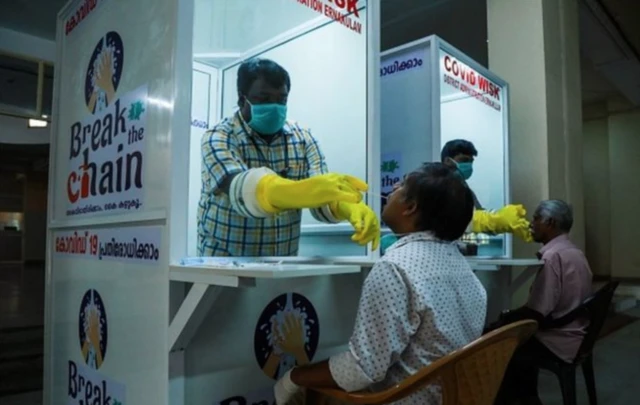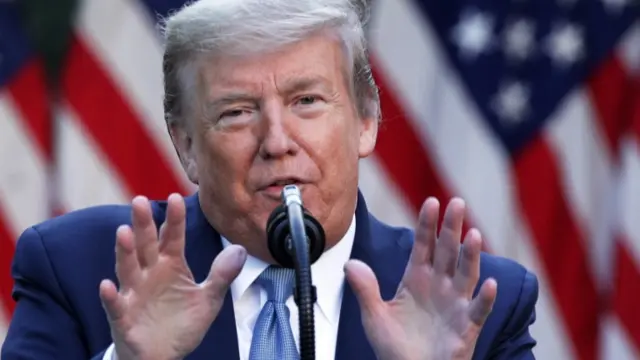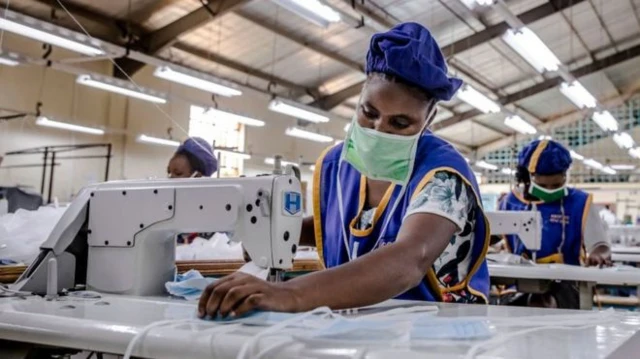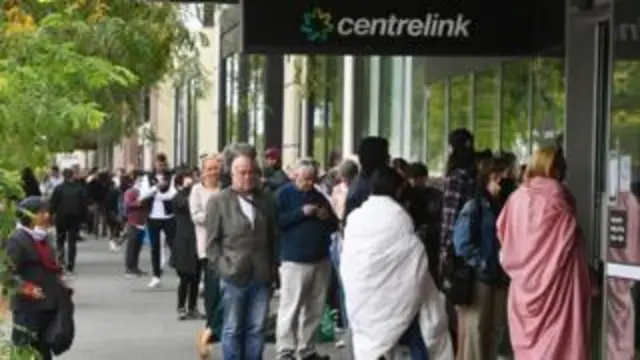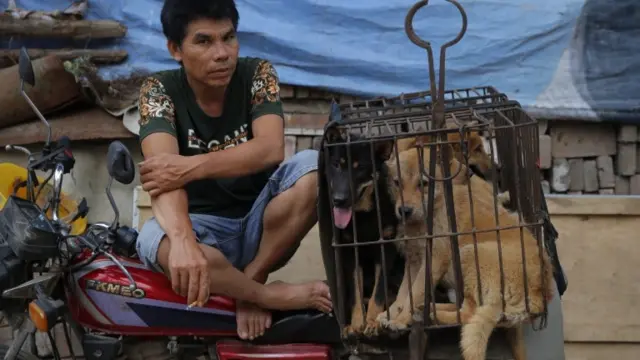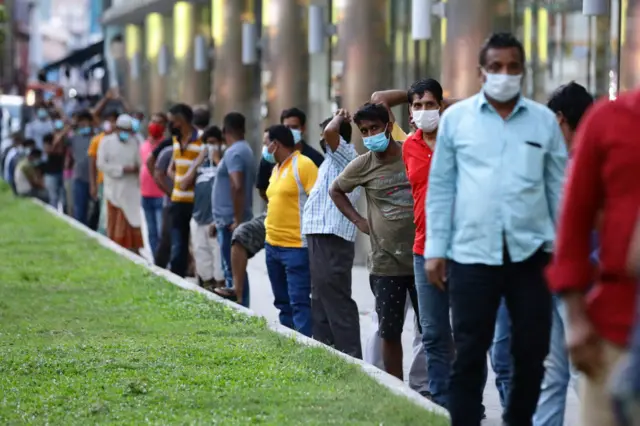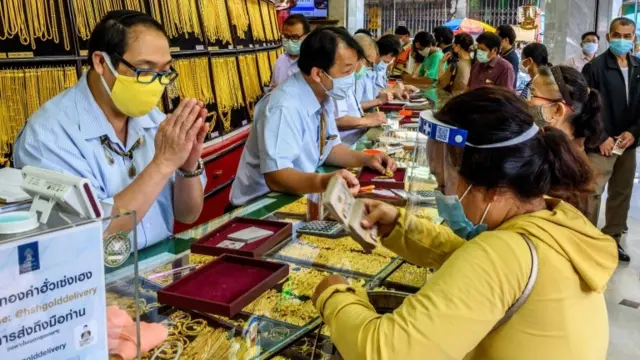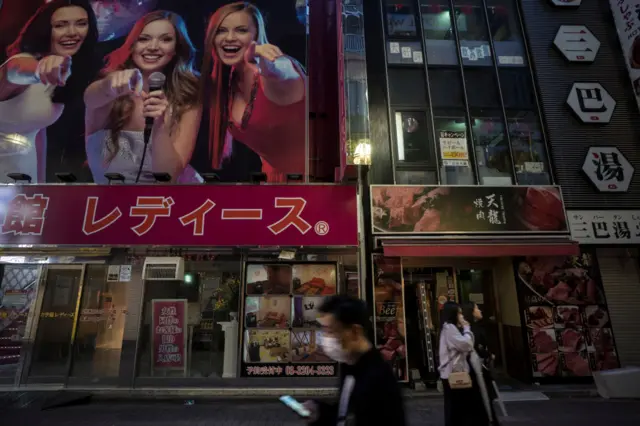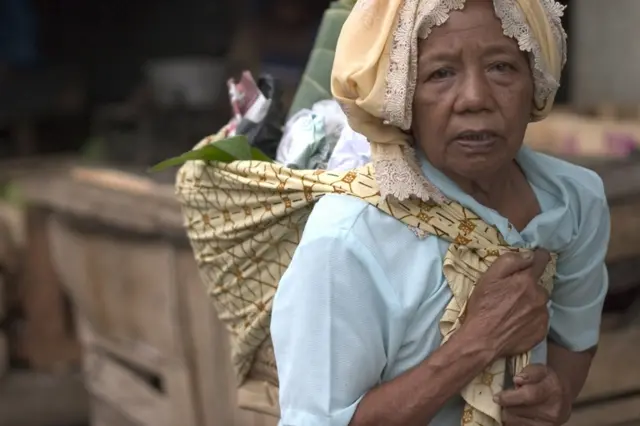Beijing sees first local transmissions in weekspublished at 05:06 BST 16 April 2020
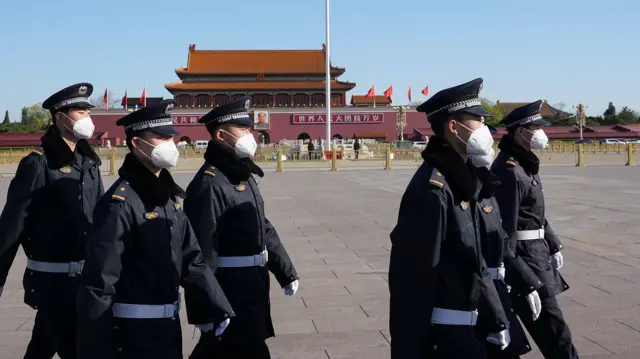 Image source, gett
Image source, gettChina has seen a slight decline in imported cases and small uptick in local transmissions.
On Wednesday, the number of new new local transmissions rose to 12 from ten, with three of those cases in Beijing - the first such infections there in weeks.
Imported cases were down to 34, down for the third consecutive day after the country implemented stricter border measures.
In recent weeks, imported infections have been China's main concern - with new cases brought in by Chinese nationals coming across the border with Russia.
